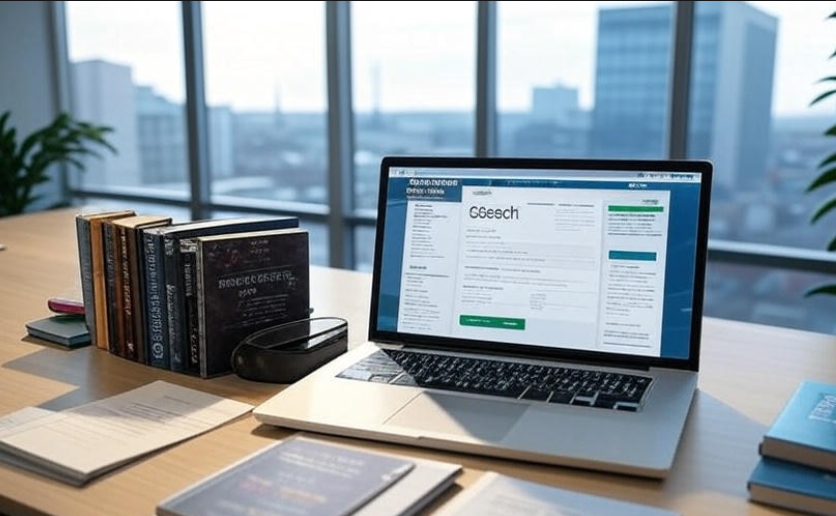Changing careers is never a small decision. In Ireland, it can feel both exciting and overwhelming at the same time. Maybe you’re stuck in a job that doesn’t inspire you anymore, or perhaps you see better opportunities in another field. Either way, making that leap doesn’t have to be scary if you approach it in the right way.
Below you’ll find practical steps, real insights, and easy tips that can help you make a smooth transition into your new career in Ireland. Let’s dive in.
Why people in Ireland switch careers
It’s worth asking first: why do people switch careers in Ireland? The reasons vary, but here are some common ones:
-
Better work-life balance
-
Higher salary or job security
-
Personal interest or passion
-
Industry decline in their current role
-
Wanting remote or flexible work options
For example, a lot of people in Ireland who worked in hospitality during the pandemic shifted into tech, healthcare, or logistics because those industries offered more stability.
Research your new career path
Before making a jump, do your homework. Don’t just rely on what sounds good. Ireland has strong industries such as:
-
Technology (Dublin is full of big tech companies like Google, Meta, Microsoft)
-
Finance (IFSC in Dublin is a hub for banking and insurance)
-
Healthcare (high demand for nurses, carers, and specialists)
-
Green energy (sustainability jobs are on the rise)
-
Education and training
Make sure you know:
-
What skills are in demand
-
The average salaries
-
Career growth opportunities
-
Whether extra training is needed
Here’s a quick example table:
| Industry | Average Salary (per year) | Demand Level | Training Needed? |
|---|---|---|---|
| Technology | €45,000 – €70,000 | Very High | Sometimes (IT certs) |
| Healthcare | €35,000 – €55,000 | High | Yes (degrees/certs) |
| Finance | €40,000 – €65,000 | High | Yes (ACCA, CFA etc.) |
| Green Energy | €38,000 – €60,000 | Growing | Sometimes |
| Education | €32,000 – €50,000 | Moderate | Yes (teaching qualifications) |
Identify your transferable skills
One of the biggest mistakes people make is assuming their past experience won’t matter in a new industry. But that’s rarely true. For instance:
-
A teacher moving into HR already has communication and training skills.
-
A retail worker moving into sales already understands customer service and problem solving.
-
An engineer switching to project management already knows how to plan and manage deadlines.
Write down your strongest skills and see how they can apply to your new career. You’ll be surprised at how much carries over.
Upskill where needed
Sometimes you’ll need to get new qualifications or training. The good news? Ireland has excellent options:
-
Springboard+: Free or subsidized courses in areas like IT, business, and healthcare.
-
Solas: Skills and training programmes for adults.
-
Postgraduate diplomas: Short courses from universities.
-
Online platforms: Coursera, Udemy, LinkedIn Learning.
Even a short course can make your CV stand out when switching industries.
Networking matters in Ireland
In Ireland, networking is often more powerful than just sending applications online. Many jobs are filled through connections, referrals, or even casual chats.
Ways to network:
-
Attend industry meetups or seminars
-
Join LinkedIn groups related to your new career
-
Ask friends or colleagues if they know someone in that field
-
Volunteer or intern to build experience
Sometimes, one coffee chat can open doors that 50 online applications won’t. ☕

Update your CV and cover letter for Ireland
When applying for a new industry, don’t use your old CV as it is. Tailor it:
-
Highlight transferable skills
-
Remove irrelevant details
-
Add new training or certifications
-
Use Irish CV style (clear, concise, no long personal statements)
Be financially prepared
Switching careers can sometimes mean a temporary pay cut. Make sure you:
-
Save up a little cushion (3-6 months expenses ideally)
-
Check if you qualify for training grants
-
Plan for part-time work while studying if needed
Here’s a simple budgeting tip:
| Expense Category | Current Job (€) | After Career Switch (€) |
|---|---|---|
| Rent & Utilities | 1,000 | 1,000 |
| Food | 300 | 300 |
| Travel | 150 | 200 (if new commute) |
| Training/Courses | 0 | 250 |
| Savings | 200 | 100 |
This way you can see if you need to adjust your spending while making the switch.
Stay mentally strong
Career changes are not always smooth. You may face rejections, doubts, or even people telling you to “just stick with what you have.” Don’t let that discourage you.
-
Remind yourself why you’re making the switch
-
Set small achievable goals (like completing a course, landing an interview)
-
Surround yourself with supportive people
-
Celebrate small wins 🎉
Success stories in Ireland
Hearing about others helps. Here are a few examples:
-
A retail manager in Cork switched to IT support after completing a Springboard+ course.
-
A nurse in Galway moved into healthcare administration because she wanted a less stressful role.
-
A finance graduate in Dublin became a digital marketer after taking online courses.
These are not “overnight” changes, but they show that it’s possible with the right strategy.
Practical steps to start today
-
Write down why you want to switch.
-
Research industries that match your interests.
-
Identify transferable skills.
-
Pick one course or training option.
-
Start networking slowly.
-
Update your CV to match your new goal.
-
Apply for jobs while still preparing.
FAQs about career switching in Ireland
Q: Is it too late to change careers if I’m in my 40s or 50s?
A: Not at all. Many Irish professionals switch careers later in life, especially into fields like healthcare, teaching, or consultancy.
Q: How long does it take to fully switch careers?
A: It depends on the field. Some people manage within 6 months if the skills overlap, others take 1-2 years if extra education is required.
Q: Will employers take me seriously if my background is different?
A: Yes, if you clearly show transferable skills and motivation. Employers in Ireland value passion and adaptability.
Q: Do I need Irish work experience for my new career?
A: Not always, but local experience helps. Internships, volunteering, or short projects can fill that gap.
Q: Can I switch careers as a non-EU worker in Ireland?
A: Yes, but you need to check if your new role is on the Critical Skills Occupations List. That list makes it easier to get work permits.
Final thoughts
Switching careers in Ireland is not just possible—it’s very common nowadays. The key is preparation: know your strengths, upskill smartly, build a network, and plan your finances. It won’t happen overnight, but step by step you’ll get there.
Remember, your career is a long journey. If you’re not happy where you are, it’s okay to take a new road. Ireland has plenty of opportunities waiting—you just need the courage to take that first step 🚀.




